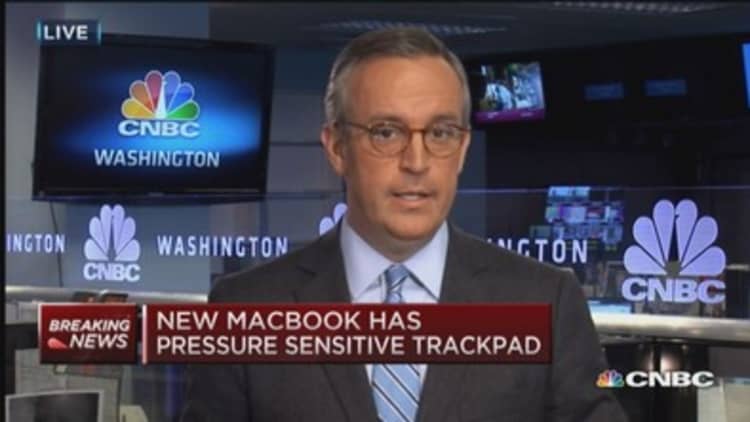
Big changes are coming for your credit report—eventually.
New York state Attorney General Eric Schneiderman announced a settlement Monday with the three major credit reporting bureaus, Equifax, Experian and TransUnion. The bureaus have agreed to make several significant changes over how medical debts will be handled and how disputes over information contained in the reports are resolved. Although a New York state investigation spurred the settlement, most changes will be enacted nationwide.
"The nation's largest reporting agencies have a responsibility to investigate and correct errors on consumers' credit reports," said Schneiderman in a statement. "This agreement will reform the entire industry andprovide vital protections for millions of consumers across the country."
Consumer advocates said the pending changes could make it easier for many consumers to improve their credit. "It seems pretty positive for consumers," said Linda Sherry, director of national priorities for advocacy group Consumer-Action.org. "So much stems out of credit reports these days. It's not just credit. A lot of other reputational decisions are made based on the reports."
Read MoreFine print: What's on your credit report?
Don't expect an immediate impact, however. While some provisions could be in place within six months, others will take more than three years. "Nothing is immediate," said John Ulzheimer, president of consumer education for CreditSesame.com. Many of the changes require programming, hiring and staff training on the part of the bureaus. "That's not something you're going to be able to snap your fingers and have happen overnight," he said.
Advocates say the most far-reaching settlement change will require a trained credit bureau agent to handle cases disputed over errors in reported information. A 2013 Federal Trade Commission study found that 20 percent of consumers had an error on their report that could affect their score, and 5 percent had an error significant enough that it could result in their paying higher loan rates.
Currently, most of the dispute process is handled electronically and automatically, with the bureau sending a query to the lender to check if the information on file is correct, said Ed Mierzwinski, consumer program director for U.S. Public Interest Research Groups. "They're just verifying sameness, not correctness," he said—which is what can keep wrong information on the report.
Read MorePast-due debts a common credit report surprise
Requiring a person to assess the dispute would let an agent better account for consumer-provided proof (say, a letter from the bank stating the debt had been paid in full, even if the report says otherwise), and modify or delete the information accordingly. Human intervention should also keep wrong information, once corrected, from reappearing. "Finally, we're not just going to have computers telling other computers that their information matches," said Mierzwinski. "That's a big, big, big change."
Consumers who file a dispute will be entitled to a second set of credit reports in a 12-month period through AnnualCreditReport.com, said Ulzheimer. That will help ensure errors are corrected, and stay corrected, he said. Bureaus will also be required to communicate more closely, so that consumers don't have to create three separate disputes over the same error.
Read More8 important money questions many people can't answer
As another big change under the settlement, medical debts sent to collections would have a grace period of six months before showing up on a consumer's credit report. Currently, there is no grace period, and debts are quick to reach collections status—resulting in 20 percent of consumers having an unpaid medical debt on their credit report, according to a 2014 Consumer Financial Protection Bureau study. The average amount owed: $579. "This 'cooling off period' gives the doctor's office, the insurance company and the patient time to work through the process," said Ulzheimer.
Bureaus will also be required to remove a medical debt once it is reported as paid or settled. "That's a big change, because today it stays for seven years," Ulzheimer said. But it's one that's warranted, said Mierzwinski—already, credit score providers play down medical debt, because they've found it has less bearing on your creditworthiness than other debts.
Read MoreAmericans are drowning in unpaid medical debt
To take full advantage of the changes, consumers will need to be proactive. A 2013 TransUnion survey found that nearly one-third of Americans had never checked their credit report, and 25 percent hadn't done so in the past year. "A lot of these new obligations of the credit bureaus are only triggered when the consumer files a dispute," said Ulzheimer. "It once against underscores the importance of pulling your reports."


